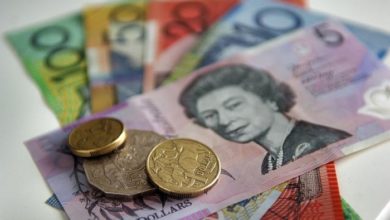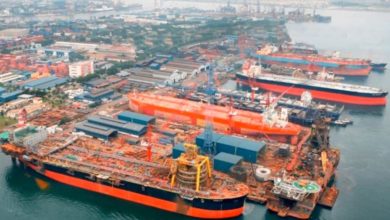The world’s second-biggest economy has largely managed to bounce back from the health crisis, though intensifying Sino-US tensions over a range of issues and the global demand outlook remain a risk factor.
Analysts had expected it to pick up a touch to 51.2.
A sub-index for the activity of small firms stood, however, at 47.7 in August, down from July’s 48.6, with over half of them reporting a lack of market demand and more than 40 per cent of them reporting financial strains, Zhao Qinghe, a senior statistician with the NBS, said in a separate statement.
“In addition, some companies in Chongqing and Sichuan reported an impact from the heavy rains and floods, resulting in a prolonged procurement cycle for raw materials, reduced orders and a pullback in factory production.”
The official PMI, which largely focuses on big and state-owned firms, also showed the sub-index for new export orders stood at 49.1 in August, improving from 48.4 a month earlier and suggesting a bottoming out in the contractionary trend after Covid hit.
“The growth engine is now clear. Overseas demand will only pick up slowly and travel restrictions will only be relaxed if Covid-19 cases subside overseas. Until then China will rely more on its own for economic growth,” said Iris Pang, Greater China chief economist at ING.
Economic indicators ranging from trade to producer prices all suggest a further pick up in the industrial sector. Profits at China’s industrial firms last month grew at the fastest pace since June 2018, data showed on Thursday.
Services shine
Activity in the construction sector, a powerful domestic growth driver, also eased in August, likely due to the floods in Southern China. But analysts are confident that as the torrential rains recede, Beijing’s infrastructure push — on the back of accommodative policies — would further bolster growth.
The official non-manufacturing PMI, which includes services and construction sectors, rose to 55.2 from 54.2 in July, the NBS survey showed.
Investment bank HSBC expects China’s economy would grow by 5.4 per cent in the third quarter year-on-year, followed by a 6.2 per cent expansion in the fourth quarter, returning China’s growth to pre-Covid levels.
But some analysts fear that the recovery could stall, hurt by rising tensions between Washington and Beijing and as another wave of local infections returns in the winter. Moreover, the continued rise in the number of Covid-19 cases across many countries, led by India and the United States, remain a risk to the outlook.
The economy, which grew 3.2 per cent in the second quarter year-on-year, is set to expand 2.2 per cent this year — the weakest in over three decades.
Capital Economics senior China economist Julian Evans-Pritchard said the services sector uptick suggested an encouraging broadening out of the recovery.
“This is consistent with our view that an investment-led rebound would eventually also shore up consumer sentiment and household spending, keeping the overall economic recovery on track.” — REUTERS




